Part Three: This Is How I Teach Simultaneously
12 March 2021
A look inside a diverse learner classroom, a music classroom, and a high school English classroom.
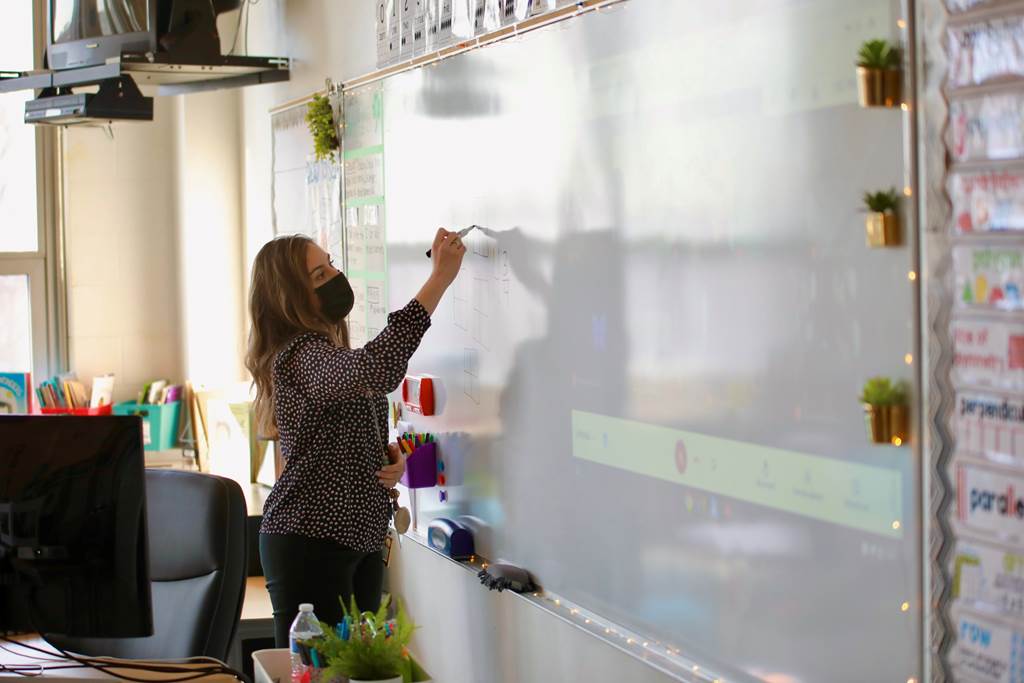
This is the third part of a year-long blog series. Readers are following Ms. Petrizzo, Mr. Spangler, and Ms. Griffin throughout the year to learn how they connect with and inspire their students. Click here to read part one and here to read part two.
At Daley Academy on the Southwest Side, Ms. Danielle Petrizzo says that she got an idea for simultaneous instruction for her fourth- and fifth-grade diverse learners—projecting her Google Meet on the whiteboard and also having one camera face the classroom—from one of her colleagues. Then, another teacher at Daley visited her classroom to observe her setup. Chain reactions like this are just one reason having students back in the building is off to a great start.
“I’m so happy to be back. It has been so great to see the kids’ faces, even with the masks and social distancing,” said Ms. Petrizzo. “All of the students who I’ve talked to have been happy to be back, too, and I’d really love to see even more faces back for quarter four.”
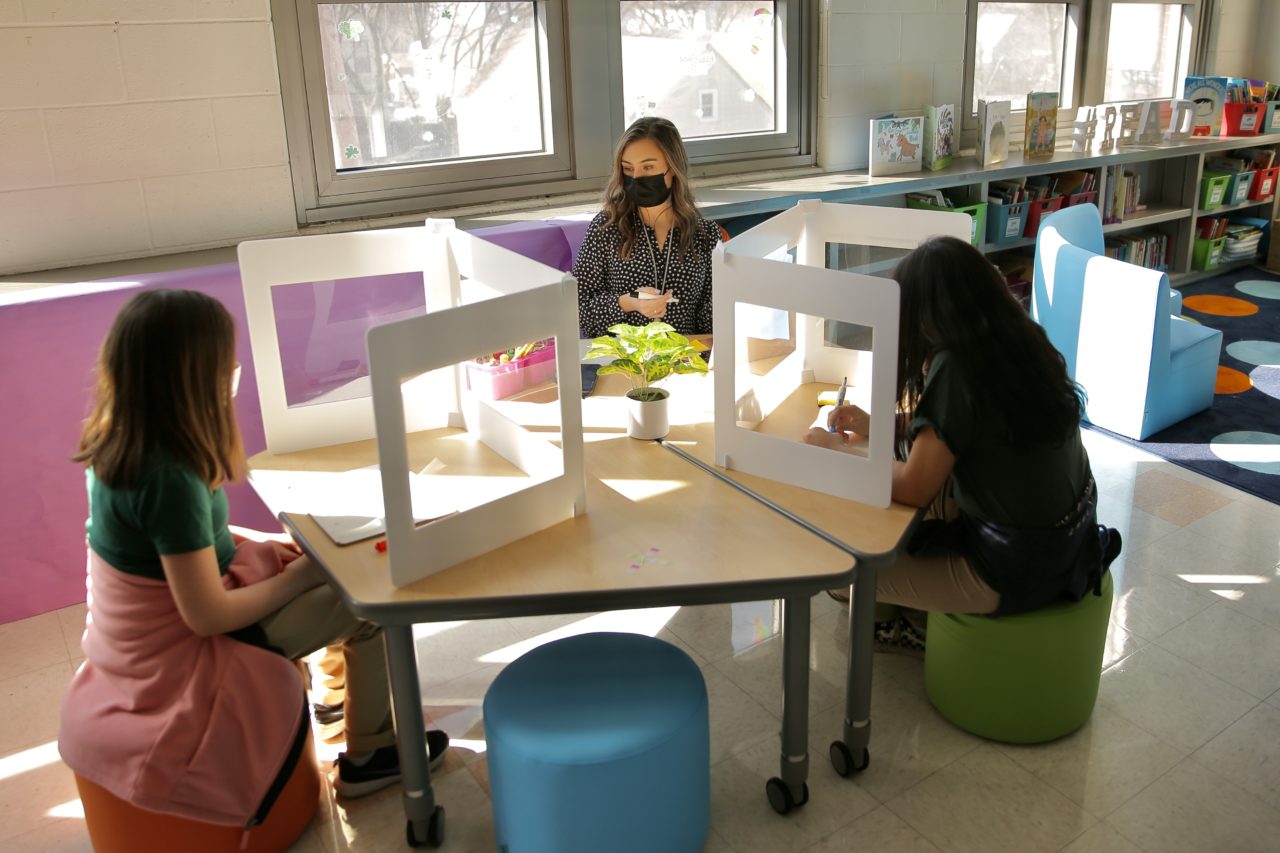
Her students are currently learning about author’s purpose with a focus on how writers use different texts to either persuade, inform, or entertain their audiences. Ms. Petrizzo is quick to point out that, even during simultaneous teaching, making lessons relatable to students has to be a top priority.
“In order to set the stage for talking about the purpose of different texts, we talked about billboards and commercials and other things that my students see in real life,” said Ms. Petrizzo. “Making it really relatable to experiences they have already had helps them find the purpose in what we are doing.”
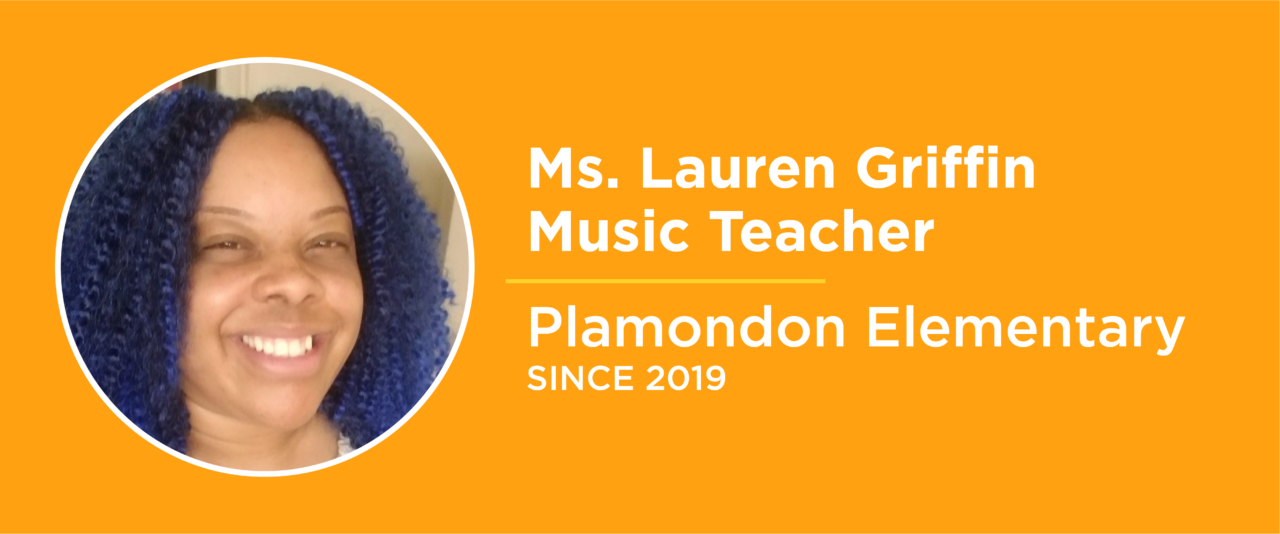
Throughout the school year, Ms. Lauren Griffin has learned that even though she is the music teacher at Plamondon STEM Elementary School, the lessons that her students need might not always be fully about music. For her youngest learners, who are generally her most engaged students, she’s gone the extra mile to collaborate with other teachers to incorporate core subjects into her lessons. If students need extra support in math or reading, they might warm up with a song about numbers or sing the ABCs.
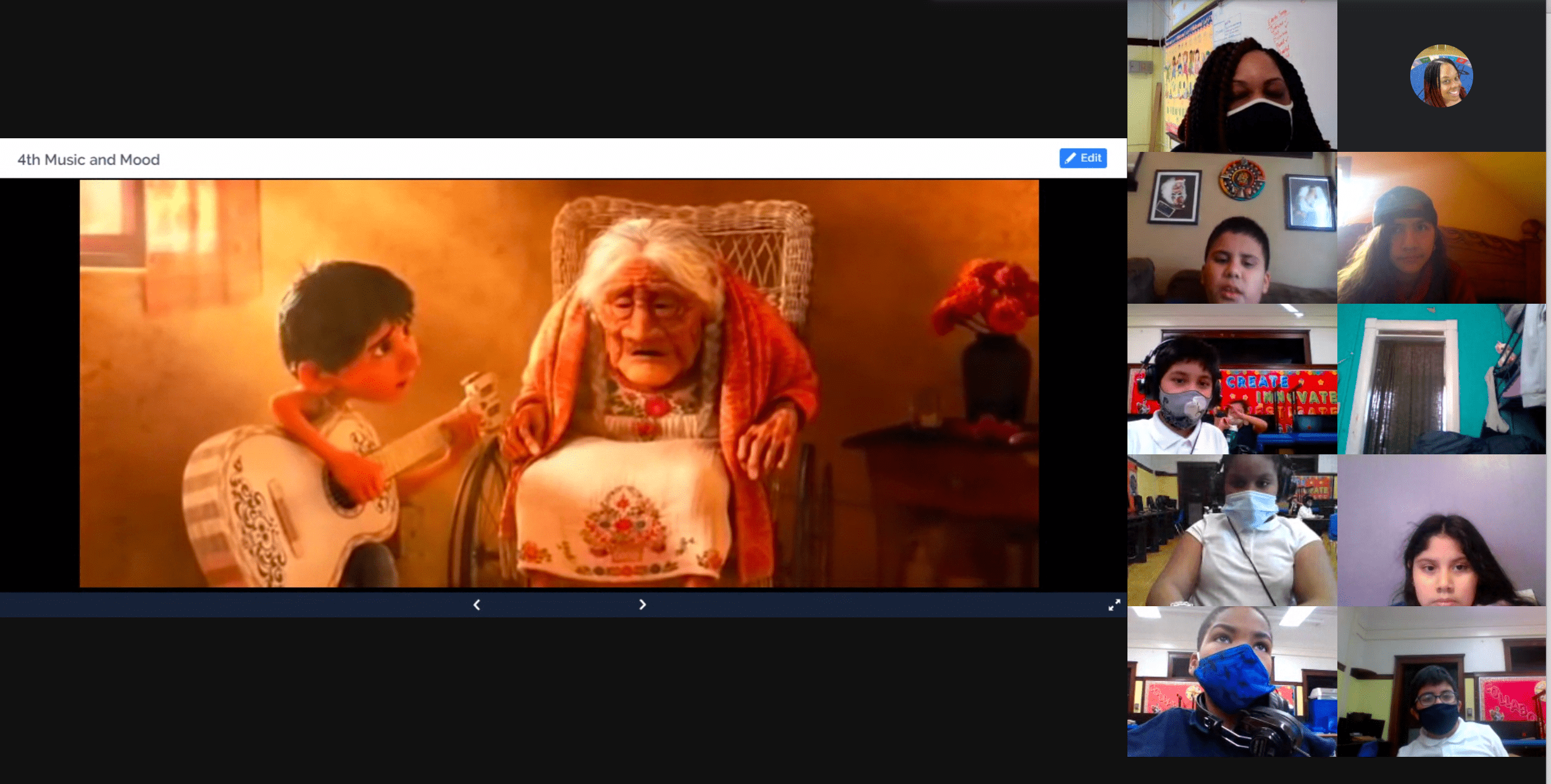
She has also found that her students are more engaged when she structures her lessons like a scientific experiment. Recently, staying true to her focus on social-emotional learning, she taught students about the relationship between music and your mood and had students watch several different videos, from a Michael Jackson music video to scenes from Black Panther and Coco. Then, both in-person and remote students shared how the videos made them feel with each other.
“With my kids coming back into the classroom, I thought my silly personality was going to rub off on them and make them want to participate more. But, especially with some of my older kids, it was still crickets,”. said Ms. Griffin. “I noticed that my students participate more when they are given the opportunity to share their opinion and either agree or disagree with each other.”
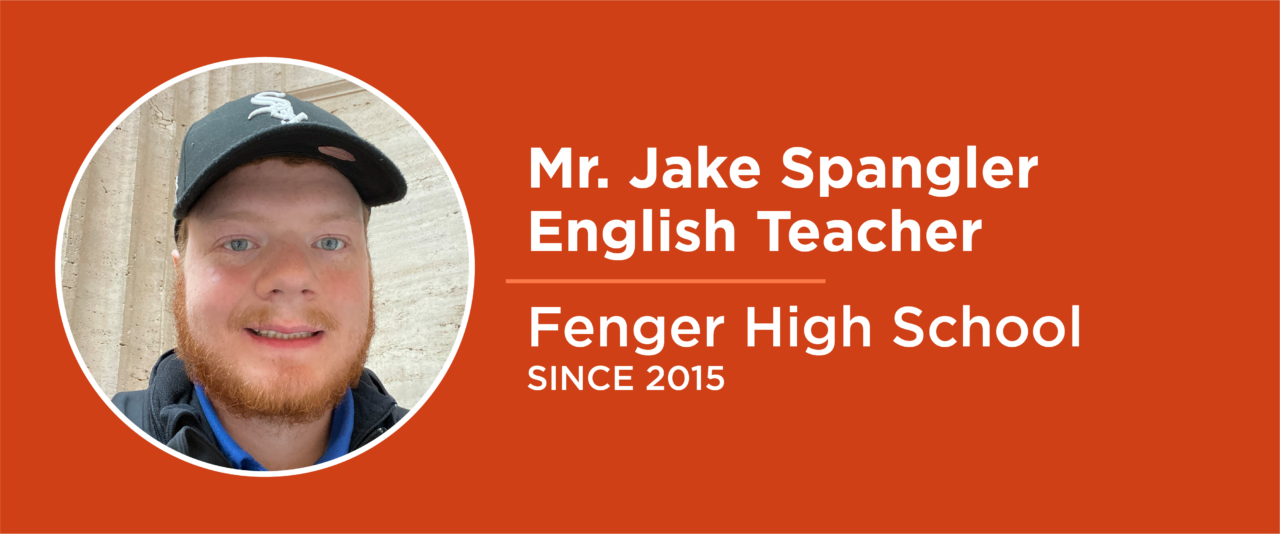
Experimentation has also been a big part of Mr. Jake Spangler’s freshman and sophomore English classes at Fenger High School over the past few months. Even though his students are still learning at home, he was able to pique their interest through a partnership with Narrative 4. Students participated in a story exchange, where they paired up and interviewed each other and then had to tell a story as if they were the person they interviewed. Now, his freshmen are hard at work writing personal narratives.
“With my freshman, we’re looking at the idea of expressing your identity through reading and writing,” said Mr. Spangler. “Narrative writing, in my opinion, is the building block for writing any other type of essay. As we move toward the end of the year, they’re going to be looking at memoirs and other forms of narrative expression.”
For Black History Month in February, his sophomores settled on a niche topic that they wanted to focus on—pieces of Chicago’s Black history and culture that most people don’t often know or talk about. Staying true to his goal of tailoring instruction to student interests, Mr. Spangler covered everything from Pullman porters to the Chicago Fire of 1874, which happened just three years after the Great Chicago Fire and largely impacted Black residents.
If Mr. Spangler had to sum up his school year so far in one lesson, he’s learned that it’s okay to slow down to help students master important skills. Ms. Petrizzo says working through this year as both a teacher and a Multi-Classroom Leader has given her a new perspective on what it means to be a lifelong learner. And Ms. Griffin has been reminded to focus on the positives. When she stopped by Plamondon for the first time after winter break, she found gifts from students in her mailbox thanking her for being their teacher.
There’s still a lot of the school year left, which means more opportunities to learn and grow for both students and teachers. We’ll check in with Ms. Petrizzo, Ms. Griffin, and Mr. Spangler one last time in a few months to hear their final thoughts on a school year unlike any other.
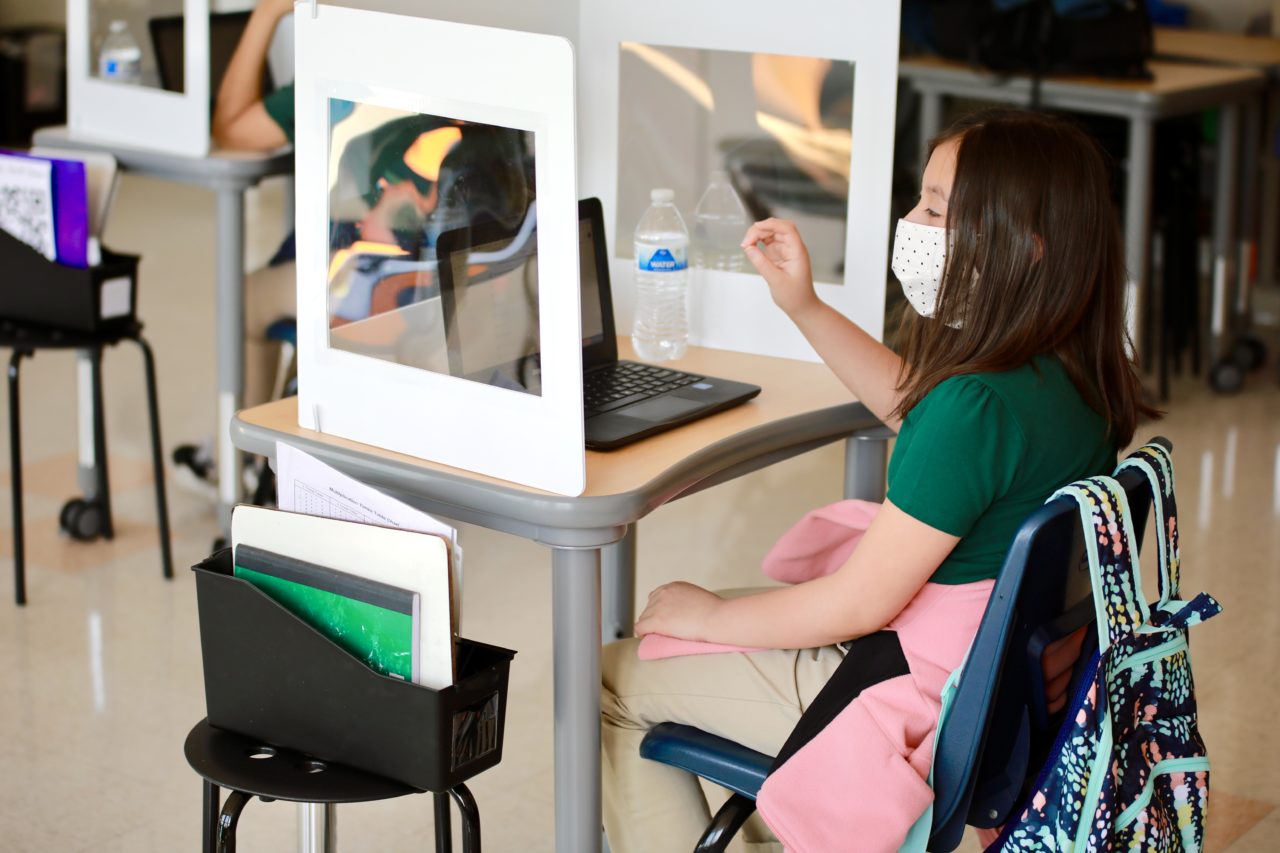
Related Stories
09 May 2025
Learning Alongside My Students: Take Five with Melissa Flisk
Ms. Flisk strives to create a calm and welcoming environment that celebrates her students’ interests, needs, skills, and personalities.
07 May 2025
Learning All About an Amazing Art Educator for Teacher Appreciation Week
Natalie loves working with students, especially those who enter her classroom without a lot of confidence in their abilities.
07 May 2025
Celebrating Teacher Appreciation Week with an Outstanding Third-Grade Educator
Reem is doing an amazing job in her first year leading a classroom of her own.
05 May 2025
Making the World a Bigger and Better Place for Students with Visual Impairments
Ms. Segroves is dedicated to providing students with direct instruction and accommodations to help them access everyday instruction.




